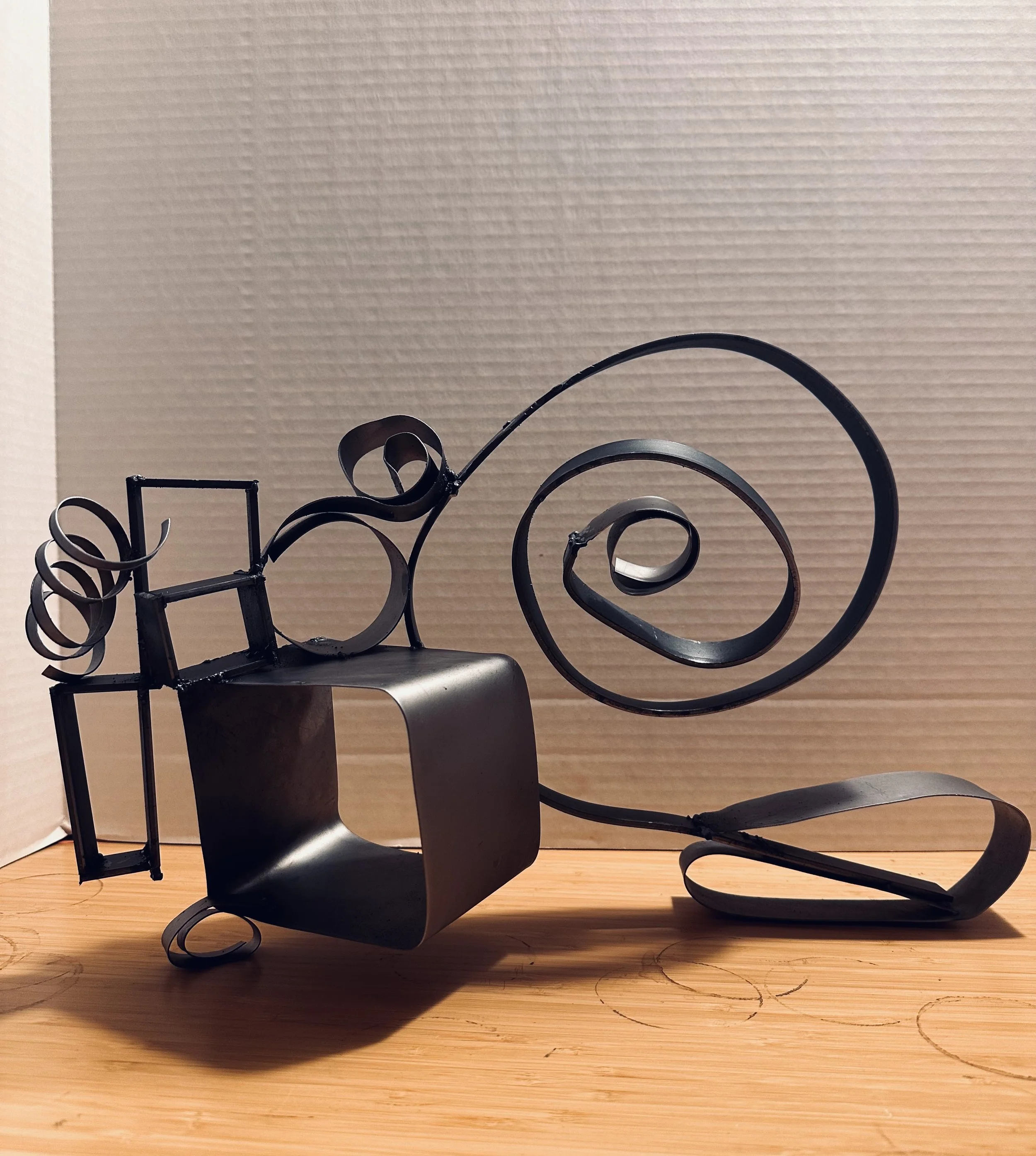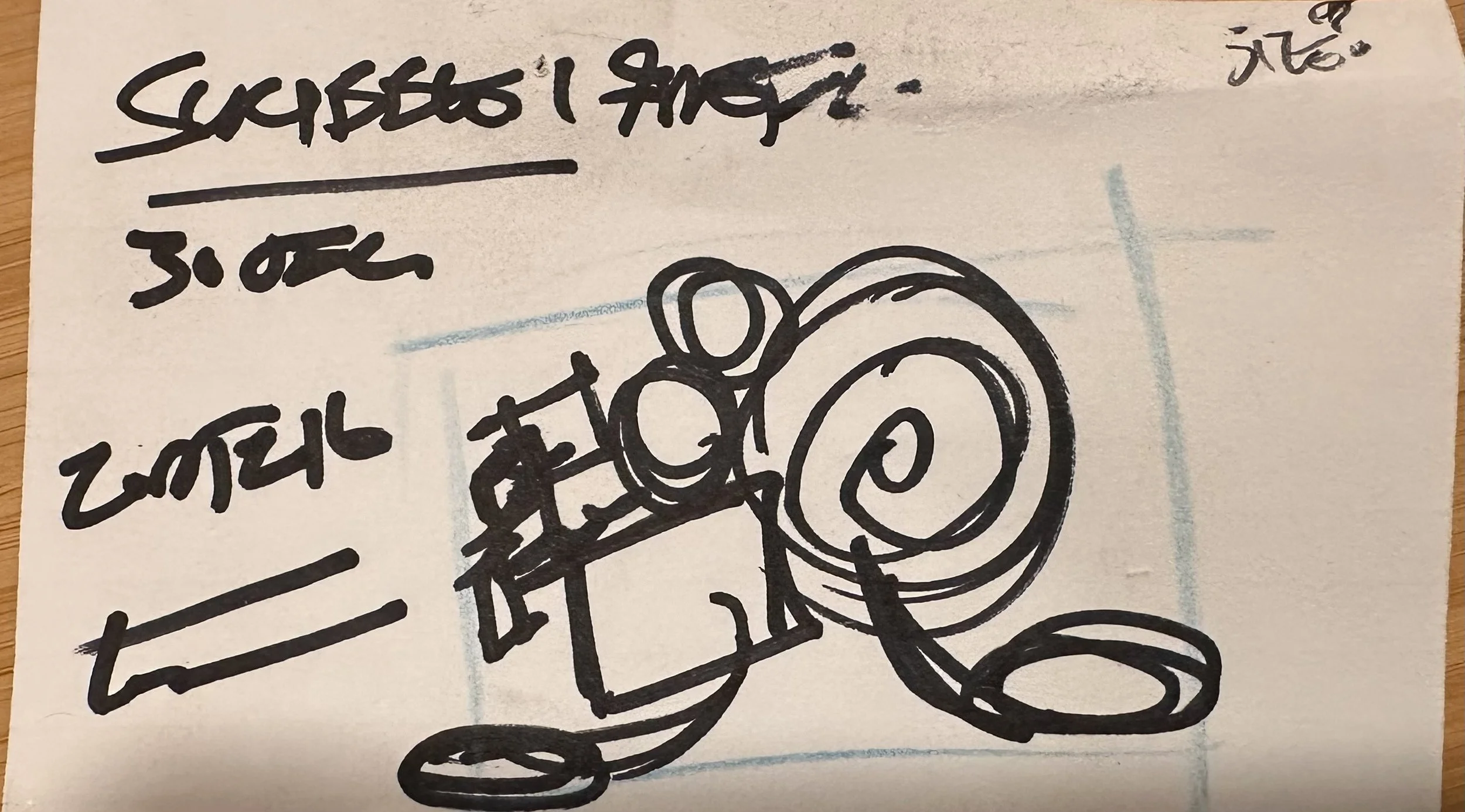metal_0069 :: scribble01
First in a new series of experiments, merging Ivan Brunetti and Lynda Barry cartooning scribble exercises with metal work. First, I take 30 seconds and draw a scribble on an index card; I then spend the next however long it takes turning it into metal sculpture. Only two rules: one, I can’t deviate too much from the scribble; and two, it has to be freestanding without any additions. Digging this first go - and will definitely do more of these.

